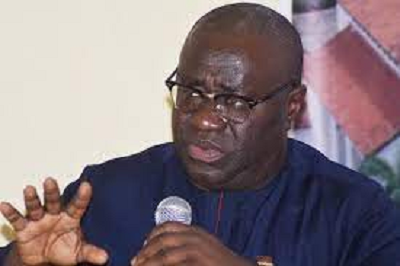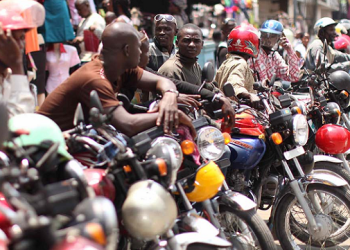Director of the Faculty of Academic Affairs and Research at the Kofi Annan International Peacekeeping Training Centre, Prof. Kwesi Aning has stated that West Africa’s terrorism landscape is diverse, multi-faceted, and fractious.
According to him, because most of these groups are driven by opportunistic calculations, they keep on shifting and re-aligning and it is impossible to determine what their next course of action is.
Speaking at the ongoing three-day capacity development program on Vulnerabilities and Resilience in Peace Infrastructures in West Africa in Cape Coast for local peace actors in the country, Prof Aning said that Ghana should not consider herself different from countries in the Sahel region and parts of West Africa that are confronted with security challenges adding that what is being seen in the region is both political and ecological violence.
“…we tend to deceive ourselves that the threat is out there but increasingly the threat is emanating from within. What by the end of tomorrow we need to be able to understand is what happens and how do we respond when the external threat and the internal dynamics clash and begin to combust.” He said.
He emphasized that “already we are beginning to see the outlines; more violent response more daring crimes, the transition from the use of pump-action guns to military grid weapons and increasingly a societal acceptance of the benefit arising out of the violence and crime. So we are no different from the Sahel.”
Prof. Aning however indicated that Ghana is the only country in the sub-region that has not gone to war but has willingly allowed its water bodies to be destroyed through greed and small scale miners who deliberately pollute the country’s waters”.
He, therefore, called for a rethink on the doctrines of prevention and building resilience as the new forms of violence that are emerging are different.
“…it is intertwined with organized crime, the galamsey that we see, the theft of rosewood, of charcoal,…so then the criminalities that we see even in Ghana must be seen not as individual acts of crime but rather ask ourselves the networks that underpin and facilitate these crimes that make it difficult for the Ghana Police Service and the aligned intelligence services to be able to respond.” He said
On his part, Tom Helge Norring, the Danish Ambassador to Ghana, said that it was the duty of all citizens to preserve the country’s stability and maintain its national peace.
He, therefore, pledged the commitment of the Danish Government to support Ghana’s security architecture to guard the country’s enviable peace, tranquility, and democratic credentials.
“In Ghana, we have seen this as a very important choice of our engagement to engage with the national peace council where we have been able to see how they intervene early to diffuse tense situations so that election violence has not escalated.”
The three-day workshop is being organized by the Kofi Annan International Peacekeeping Training Centre in partnership with the National Peace Council and with support from the Government of Denmark in Cape Coast.
Source: Anthony Sasu Ayisadu/ATLFMNEWS


























